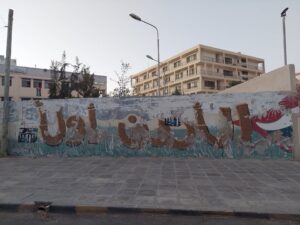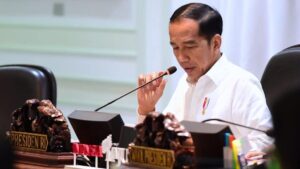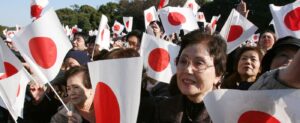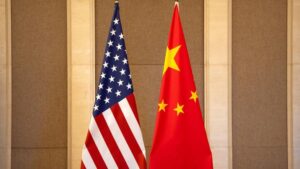IA-CEPA: Long Way To Go for Development Cooperation
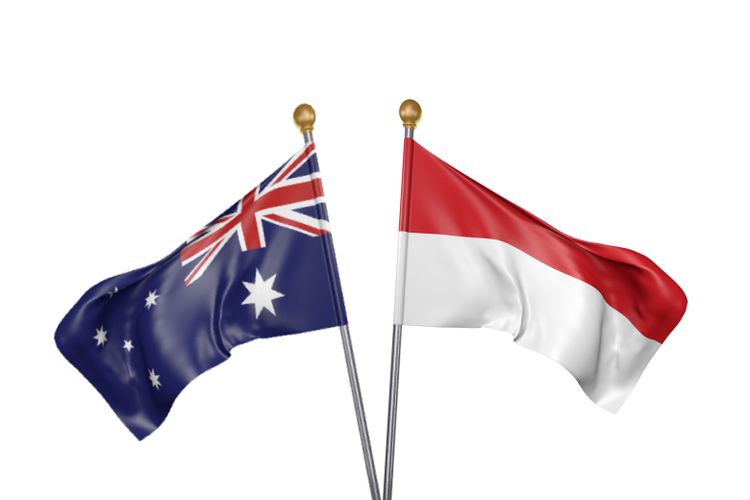
Ilustrasi bendera Indonesia dan Australia. Foto: Istockphoto.com
In July 2020, Indonesia and Australia officially ratified and enact Indonesia-Australia Comprehensive Economic Partnership Agreement (IA-CEPA). This new agreement gives positive reviews among Indonesian economists. The talk that had been held since 2010 and 2013 once ceased for three years then continued in 2016. This agreement was signed in 2019 and authorized by the Ministry of Trade of Indonesia and the Ministry of Trade, Tourism, and Investment of Australia in Jakarta. Besides it benefits both countries in term of quantity, the agreement also bolsters development exchange, as it mentioned by Shinta Widjaja Kamdani, vice head of Indonesian Chamber of Commerce and Industry (KADIN), that this agreement also promotes more partnership instead of market liberalization. Perhaps, this cooperation marks another new economic cooperation that equal to any stakeholders involved.
Historically speaking, economic relations between two or more states back then inclined to be exploitative for the weak. It has been an open secret that the weak often identified as Global South countries. Post-World War II, the form of economic relations between the North and South might be recognized as ‘dependent relations’ and it had been theorized by dependency theorists. As the awareness of freedom from hierarchal dependency grows, Global South countries have been encouraged and been fighting to negotiate their position in the global political economy realm.
Domestically, the awareness of freedom manifested in the form of anti-suppression of the working class—as one of the crucial players of the economic growth for countries. Economic upsurge now defined not as narrow as mere of GNP or GDP, but also regarding human capital. The investment of economy, either domestically or in trade term, shall be layered by social investment in which, it needs the guarantee of human welfare aspects. It has been mentioned before by some scholars how the economic productivity of the workers oftentimes backed up by the quality of welfare they attain.
Amartya Sen is one of the leading scholars who promote human development. In his writing in Freedom as Development, Sen hypothesized how welfare aspects (economic opportunities, political liberties, education, health, etc) may promote positive productivity of humans. Another scholar, Jan Nederveen Pieterse, later broadened the scope of development theory. He proposed that development now occupies the regional level as the implication of supporting diversity and differentiation. However, he hinted that it is not justifiable to generalize development across countries and regions. That means countries that join in development cooperation both have different standardization to improve their citizens’ welfare.
Contextualized in the current situation, the line the developed and developing may gradually perish as the problems of economic growth and needs of development lay not exclusively on the South/East, but it is the problem of common humans. This might what happen to Indonesia and Australia relations. Moreover, both have colonialism background though Australia itself has ‘notable’ note on Papua New Guinea or even Papua in Indonesia.
Summarising IA-CEPA, this agreement expunges import duties for certain products and will add other products gradually. In terms of development cooperation, both countries agree to provide visas for 4100 Indonesian workers in the first year and might increase in the following year up to 5000 workers. This means that Indonesia will open more chances for its citizens to participate in economic activity. Furthermore, this agreement also promotes capacity development for Indonesians. It was said that Indonesians will have training in Australia for six months in the health, education, tourism, IT, and e-commerce sector. In other words, Australia will have investment rights 67% in the field of vocational education and job training in Indonesia. In the sector of formal education, Australia might establish its world-class university, Monash University, and Australian National University, in Jakarta. Thus, Indonesia will have feasible access to get global top education system.
Finally, the development cooperation can be traced in a way both countries will collaborate to empower each advantage. If the collaboration is conducted fairly, then the optimist toward equal trade may grow and influence other countries’ cooperation. However, no matter how the trade benefits both, there must be points that need to be taken care of.
Bhima Yudhistira, a researcher at the Institute for Development of Economics and Finance, said that the accessible path for Indonesia to get into Australia’s market may be hampered due to Australia’s preference for high-quality products. This point needs to be considered for Indonesia’s government as the problems of export non-oil and gas sector still relatively not competitive and thus, in the global market, the profits may not return in greater amount. This may be a call for governments to push high-quality production instead of massive quantity orientation. Besides, what needs to be highlighted is the incentives for the workers who produce. Nonetheless, what happened around 2020 was the ratification of Omnibus Law which grew controversial among the working class. It can be said that this law supports Indonesia’s economy merely in terms of investment, which might benefit IA-CEPA, but forget to guarantee some of welfare aspects of the workers.
Although Australia might offer support for vocational training to improve the quality of Indonesian workers, it is still the government’s responsibility to carry it out comprehensively. Still, in 2020, Indonesia faced the ineffectiveness of Kartu Pra-Kerja (pre-employment card). Two considerable points were the incompetent curriculum that had been provided from the program and the other one is regarding corruption scandal. The writer sees that the employment opportunity written in IA-CEPA will not as beneficial as it seems if the government standstill with the stagnant improvement of their workers.
Since this is a cooperation with mutual advantages for both, not a voluntary gift, Indonesia has to offer an equal return for its partner, such as providing high-quality workers that competitive enough. The aim is none other than to minimize sentiments from local workers—since union in Australia also expressed their restlessness for the upcoming of immigrant workers post-IA-CEPA ratification. It is not odd if in the future Australian resist IA-CEPA caused by Indonesian workers for their inadequate productivity, either in labor or the output. Put back to Pieterse, development is intrinsically a field of multi-level negotiation and different stakeholders have different takes on what development means. In concise, this writing sees beyond the restlessness of economic cooperation which for a long time, it had always been put the developing countries in a pitiful position. Meanwhile, the ruling of developing countries sometimes can be a hidden actor that contributes to such condition, indirectly.
Reference
Edwards, L. (2013). The Passion of Politics: The Role of Ideology and Political Theory in Australia. Sydney: Allen & Unwin.
Pieterse, J. N. (2010). Development Theory. Nottingham: SAGE Publications.
Website
Akbar, C & Dewi R.C. (2020, 6 July). IA-CEPA Berlaku, Perdagangan Barang RI-Australia Masih Defisit. https://bisnis.tempo.co/read/1361596/ia-cepa-berlaku-perdagangan-barang-ri-australia-masih-defisit.
Andri, Y. (2019, 19 January). Harga Tak Kompetitif, Produk Indonesia Sulit Bersaing di Pasar Ekspor Nontradisional. https://ekonomi.bisnis.com/read/20190121/12/880778/harga-tak-kompetitif-produk-indonesia-sulit-bersaing-di-pasar-ekspor-nontradisional.
Ferio. (2020, March). IA-CEPA, Perjanjian Anyar Indonesia-Australia untuk Meningkatkan Roda Ekonomi. https://www.pajakku.com/read/5e4b3df4387af773a9e015f4/IA-CEPA-Perjanjian-Anyar-Indonesia-Australia-untuk-Meningkatkan-Roda-Ekonomi.
Ibrahim, F. M. (2019, 14 October). Politisi Oposisi Australia Tolak Perjanjian Perdagangan Bebas dengan Indonesia. https://www.abc.net.au/indonesian/2019-10-14/politisi-oposisi-australia-tolak-perjanjian-perdagangan-bebas-d/11599056.
Kristianto, Y. I. A. (2020, 20 November). Bagaimana RCEP Bisa Menguntungkan dan Merugikan Indonesia. https://theconversation.com/bagaimana-rcep-bisa-menguntungkan-dan-merugikan-indonesia-150453.
Newswire-Bisnis.com. (2020, 19 June). Polemik Kartu Prakerja, KPK Sampaikan 7 Rekomendasi kepada Pemerintah. https://kabar24.bisnis.com/read/20200619/15/1254853/polemik-kartu-prakerja-kpk-sampaikan-7-rekomendasi-kepada-pemerintah.
Salim, N. (2020, 11 June). Peluang Indonesia Memasuki Pasar Australia serta Ancaman dari Perjanjian Perdagangan Baru di dalam Negeri. https://www.abc.net.au/indonesian/2020-06-11/siapa-yang-diuntungkan-dari-perdagangan-australia-dan-indonesia/12343832.
Susanto, V. Y, & Yoyok. (2020,11 February). Kemenaker: Sebanyak 48,5% PMI Bekerja di Sektor Formal di 2019. https://nasional.kontan.co.id/news/kemenaker-sebanyak-485-pmi-bekerja-di-sektor-formal-di-2019.
Rizzah Aulifia is a Political Science Student at the University of Indonesia. She can be found on Instagram with the username @rizzhaulifia

